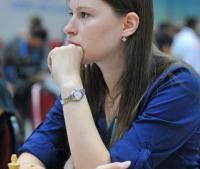
Chess Psychology
Psychology is an integral element of chess. To win a game (tournament, match) one needs to be strong not only in chess, but in the psychological sense as well. Every chess player can recall moments when he/she could not recover from a terrible loss (or draw) and kept losing points in other rounds. Or were surprised by a twist of the game and could not adjust to it. The chess elite pay a special attention to psychological preparation. For example, in 2008 the participants of the FIDE Grand Prix have been asked: “How do you handle chess failures?” I can relate to the views of Gashimov, Cheparinov, Bacrot, Jakovenko and Akopian.
An improving chess player should not only study, practice, but also work on his psychology. Let’s consider two important aspects of chess psychology:
1) Your state of mind during the tournament (match) in general
2) Your state of mind during a certain game
A regular tournament implies 1 or 2 games per day without any weekends or rest days. Therefore, if you have lost or failed to convert a totally won position and keep bugging yourself for it, there is a high chance you will end up in trouble again and waste a lot of nervous energy along the way. Your emotional discomfort may show in different ways. For example, if you are willing to strike back at all costs, you may easily forget about the objective evaluation of the position and start playing adventurously. Or you could get your mental batteries uncharged by worrying and lose due to lack of energy. Thus, it is very important to know how to deal with losses. Try to get over it as soon as possible. Do a quick blunder check, fix your opening, and forget about it until the end of the event. Take a good rest and concentrate on the next game. Remember that each loss is just a lesson. If you treat losses this way, it will be easier to handle defeats. After the tournament, however, you should analyze your games carefully and determine your chess weaknesses so that to know on what to work in the future. This is absolutely critical for one’s chess improvement.
A chess game is a confrontation between two partners. The struggle is going on not only at the board, but between their identities. Mistakes are inevitable, and the one who manages to keep his cool has higher chances of winning.
First of all, you should feel confident at the board. I mean real confidence, concentration, being sure you can play well, right posture, not some freaky “death stares” or “arm-wrestler’s handshakes”. If your opponent feels you are faking it, he will become more motivated to win.
Secondly, never blame yourself for blunders (“ok, I’m a bit better now, but I would have won already had I played 25.Nf6…”) during the game. Otherwise you may become so obsessed with it you will make matters even worse. Take the game as it is, re-consider the evaluation of the position and try to play on calmly, as if nothing unexpected has happened.
Thirdly, it’s a great idea to try to lure your opponent into the type of positions he likes least of all. He will both be irritated (and that increases the probability of making a mistake) and outplayed (since he generally doesn’t know how to handle such positions).
Never resign too early and keep defending bitterly and tenaciously. A lot of totally lost positions have been saved even against world class players. When you are on the other side of this situation (i.e. winning), never relax until the game score sheet is signed in your favor. Otherwise you may see your lovely 1-0 turn into ½-½, or even into an ugly 0-1.
These are the main rules of chess psychology, not to mention “the Dark Side” – how to suppress your opponent and make him lose comfort and confidence. Since I am neither practicing nor advocating the usage of such foul play, we won’t be discussing it in this article.

Nikolai the Terrible: my best chess second at Dagomys!
Now let’s take a look at the 2nd game of the Russian Club Championship-2010 (see my article on Round 1 of the event) from the perspective of chess psychology:






